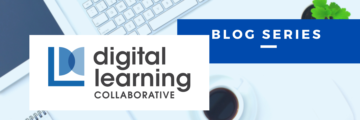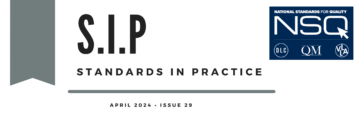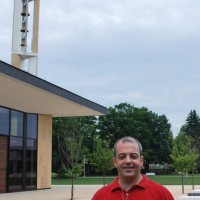September 8, 2023
Exploring the Power of Theory in Action: Unleashing Innovation at Outschool.org
An item from a neo-liberal… This one is an item from a business professor with little direct experience in education, but who believes free market economic principles are the answer to education’s (and pretty much all other society’s social) problems.
Open in app or online
SEP 6 Exploring the Power of Theory in Action: Unleashing Innovation at Outschool.org
MICHAEL B. HORN As Clay Christensen always said, despite its reputation, a good theory is a very practical tool. It helps you to decide what steps will lead to what results in a given circumstance. It’s not “theoretical.” In this conversation with Outschool.org’s Kris Comeforo, we break down how he used innovation theories to guide a program that Outschool.org put in place to serve homeschool students in Detroit—which it’s now expanding elsewhere. Kris told me about how he used the theory of interdependence and modularity, the Jobs to Be Done theory, and some of the other points from my book, From Reopen to Reinvent, to drive his actions. I enjoyed geeking out with Kris and learning about how they engaged homeschool students in the city of Detroit to make a real impact. It was gratifying to hear how the work is now expanding through the use of theory along with the spread of education savings accounts and micro-grant programs in at least 14 states at the time of this recording. As always, subscribers can listen to the conversation, watch it below, or read the transcript.
Welcome to the Future of Education, where we are dedicated to building a world in which all individuals can fulfill their human potential and build their passions and and to help us do that, in today’s conversation, we’re welcoming Kris Comeforo, who is the Director of Product and Programs at Outschool.org and a recent graduate of Harvard University’s EdLD program, which is a program focused on education, leadership. And so, Kris, it’s great to see you. I’m excited to talk about the research that you did as part of that program and then some of what you’re doing at Outschool.org that we’ll get into in just a moment. But first, welcome.
Kris Comeforo:
Thank you. So, Michael, really, really excited to be here and have this conversation with you.
Michael Horn:
Yeah, you bet. So I’ll give folks a little bit of a background of why I was so excited to have this conversation. You reached out some months ago because you were starting to work without school and an organization in Detroit which I’ll let you share more about in just a moment. But a lot of the theories that my research is based on in terms of helping organizations innovate became not so theoretical. You were really using them on the ground. And I said we just ought to geek out about this and learn about what you learned in the process. So why don’t you set the scene for us first? Because I’ve read this capstone project that you did about this work in Detroit, but set the scene for folks. Who were you working with? What was the objective? What were you and Outschool.org trying to learn?
Kris Comeforo:
Yeah, absolutely. And I’ll first explain the distinction between Outschool and Outschool.org because I know that raises some questions with folks. But Outschool is an education platform with live online instruction. I think over 140,000 active classes on there, they’ve reached over a million learners in nearly 200 countries. Really great platform. And on March 2020, Outschool realized that a lot of families that could benefit from live online instruction might not be able to afford it. So they established Outschool.org very early on into the pandemic with the mission of making sure learners that experience racial or economic marginalization have access to a suite of services so that they can love learning. So that’s how Outschool.org really got started. And in the beginning, Outschool org’s thesis was providing access to Outschool classes. And that’s what the organization did through what I kind of consider like the emergency relief part of the pandemic, when really no schools were open and educational opportunities were limited. But as Outschool.org started to rethink what its strategy was going to be, as schools started to reopen and things and the landscape started to change a little bit. And that’s about when I entered Outschool.org through a year long residency with that EdLD program that you described earlier. So I was going to be spending ten months with this organization trying to think, like, how are they best positioned with the resources that they have and the access that they have to the relationship without school to serve communities and what they really need. And where I focused my work around was this organization, Engage Detroit, which is a group of homeschool families in Detroit, Michigan, started by Bernita Bradley, who is a complete tour de force in education and community organizing. And it was a pleasure to work alongside of her and her community. But we really asked that question of what do you need and how can we best support? And they too, were an emerging organization. Bernita herself wasn’t a homeschool parent. She spent a lot of time supporting public schools and public school initiatives. But during the pandemic, she and a lot of her neighbors and friends turned to homeschooling to really support their children’s education. So spent a year developing our newest program Outbridge with Engage Detroit.
Michael Horn:
Perfect. Now that’s super helpful background, and obviously I’ll just make a few footnotes for folks that are tuning in, Outschool the parent, if you will, for-profit in this case. Obviously, I think a lot of folks became familiar with them, if they weren’t already during the Pandemic signing up for enrichment classes. I know my kids took several classes on Outschool during the Pandemic, and it’s still part of their imaginary play because they remember it well. So you have that. You have Outschool.org then trying to figure out how do we leverage what we can bring to bear for these communities. Bernita, I will say her work in Detroit, she really is a tour de force. She was the one on a panel at GSV who put me in my own place. I sort of said, how do these parents that don’t have backgrounds in education and maybe a lot of wealth in many cases because she’s really working with marginalized families who don’t have a lot of resources in many cases. I sort of said, how can they possibly navigate this world of homeschooling and make sure their kids are getting the resources that they need to bear? And I know we’re going to get into this, but I’ll never forget her line, which was, Michael, 16% of Detroit students can read proficiently. You better believe we can do better than that. And so that’s sort of where your story kicks off, because you start to work with her and you start to think through and you have this theory of action as you describe it. What are the resources and sets of information that we need to help this community of parents really unlocking the promise of homeschooling and specific the customization to their kids needs that they desire? So tell us a little bit more about that theory of action and then we’ll get into some of the theory driven parts of that on the innovation side.
© 2023 Michael Horn
No comments yet.
RSS feed for comments on this post. TrackBack URI
- SEO Powered Content & PR Distribution. Get Amplified Today.
- PlatoData.Network Vertical Generative Ai. Empower Yourself. Access Here.
- PlatoAiStream. Web3 Intelligence. Knowledge Amplified. Access Here.
- PlatoESG. Automotive / EVs, Carbon, CleanTech, Energy, Environment, Solar, Waste Management. Access Here.
- PlatoHealth. Biotech and Clinical Trials Intelligence. Access Here.
- ChartPrime. Elevate your Trading Game with ChartPrime. Access Here.
- BlockOffsets. Modernizing Environmental Offset Ownership. Access Here.
- Source: https://virtualschooling.wordpress.com/2023/09/08/exploring-the-power-of-theory-in-action-unleashing-innovation-at-outschool-org/
- :is
- :not
- :where
- $UP
- 000
- 13
- 14
- 16
- 160
- 200
- 2020
- 24
- 33
- 40
- 8
- a
- Able
- About
- absolutely
- access
- Accounts
- Action
- actions
- active
- afford
- ago
- All
- along
- alongside
- already
- always
- an
- and
- answer
- ARE
- around
- AS
- asked
- At
- auto
- b
- background
- backgrounds
- based
- BE
- Bear
- became
- because
- begin
- Beginning
- believe
- believes
- below
- benefit
- BEST
- Bet
- Better
- between
- Bit
- book
- Break
- bring
- build
- Building
- business
- but
- by
- CAN
- case
- cases
- Category
- Center
- change
- Christensen
- circumstance
- City
- classes
- comment
- comments
- Communities
- community
- complete
- Consider
- Conversation
- could
- countries
- customization
- data
- de
- decide
- dedicated
- describe
- described
- desire
- Despite
- developing
- DID
- direct
- Director
- distinction
- do
- doing
- done
- Dont
- down
- drive
- driven
- during
- Earlier
- Early
- Economic
- Education
- educational
- elsewhere
- emergency
- emerging
- end
- engage
- engaged
- entered
- established
- Ether (ETH)
- excited
- expanding
- experience
- Explain
- Exploring
- familiar
- families
- feedback
- few
- Figure
- First
- focused
- For
- Force
- Free
- friends
- from
- Fulfill
- future
- Geek
- get
- getting
- Give
- given
- going
- good
- graduate
- great
- Ground
- Group
- guide
- harvard
- Have
- he
- hear
- help
- helpful
- helping
- helps
- her
- here
- his
- How
- HTTPS
- human
- i
- I’LL
- identifier
- if
- imaginary
- Impact
- in
- individuals
- information
- initiatives
- innovate
- Innovation
- into
- IT
- ITS
- Jobs
- just
- Kicks
- kids
- Kind
- Know
- landscape
- lead
- Leadership
- LEARN
- learned
- learning
- least
- let
- Leverage
- like
- Limited
- Line
- little
- live
- Long
- Lot
- love
- make
- Making
- many
- March
- march 2020
- Market
- maybe
- me
- Meta
- Michael
- Michigan
- might
- million
- Mission
- moment
- months
- more
- much
- my
- Navigate
- nearly
- Need
- needs
- neighbors
- never
- Newest
- no
- now
- objective
- of
- off
- on
- ONE
- online
- open
- opportunities
- or
- organization
- organizations
- organizing
- Other
- our
- out
- Outschool
- over
- own
- pandemic
- panel
- parents
- part
- parts
- Place
- platform
- plato
- Plato Data Intelligence
- PlatoData
- Play
- pleasure
- points
- positioned
- possibly
- Post
- potential
- power
- Practical
- presentation
- pretty
- principles
- problems
- process
- Product
- Professor
- Program
- Programs
- project
- promise
- providing
- public
- put
- question
- Questions
- raises
- reached
- Read
- real
- realized
- really
- recent
- recording
- reduce
- relationship
- relief
- remember
- reopen
- reputation
- research
- resource
- Resources
- Results
- right
- Said
- Savings
- say
- scene
- School
- Schools
- see
- serve
- Services
- set
- Sets
- several
- Share
- she
- side
- signing
- Simple
- site
- So
- Social
- some
- spam
- specific
- Spending
- spent
- spread
- start
- started
- Starting
- States
- Steps
- Still
- Story
- Strategy
- Students
- subscribers
- suite
- Super
- support
- Supporting
- sure
- syndication
- TAG
- Talk
- tell
- ten
- terms
- than
- that
- The
- The Future
- The Landscape
- their
- Them
- then
- theoretical
- theory
- There.
- These
- thesis
- they
- things
- Think
- this
- Through
- time
- to
- today’s
- too
- took
- tool
- Tour
- Transcript
- Turned
- under
- unleashing
- unlocking
- us
- use
- used
- uses
- using
- very
- was
- Watch
- we
- Wealth
- welcome
- welcoming
- WELL
- were
- What
- when
- which
- WHO
- why
- will
- with
- without
- WordPress
- Work
- working
- world
- year
- yet
- you
- Your
- zephyrnet





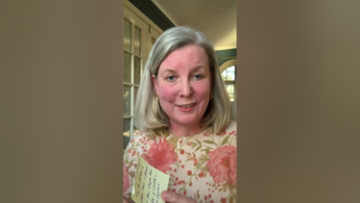
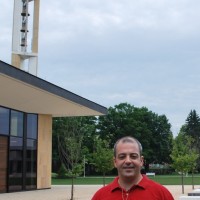
![[Article] Filling vessels or kindling flames?](https://platoaistream.net/wp-content/uploads/2023/05/article-filling-vessels-or-kindling-flames-360x81.jpg)

